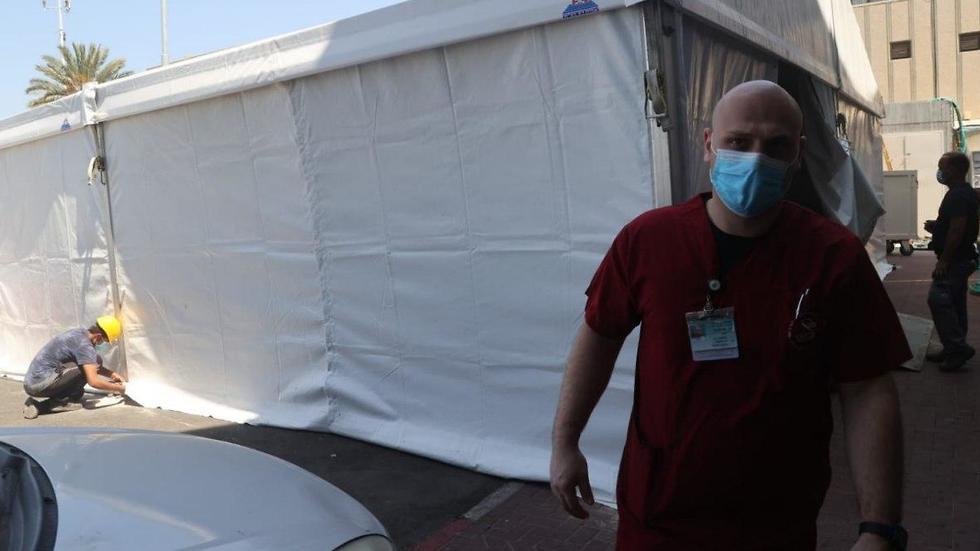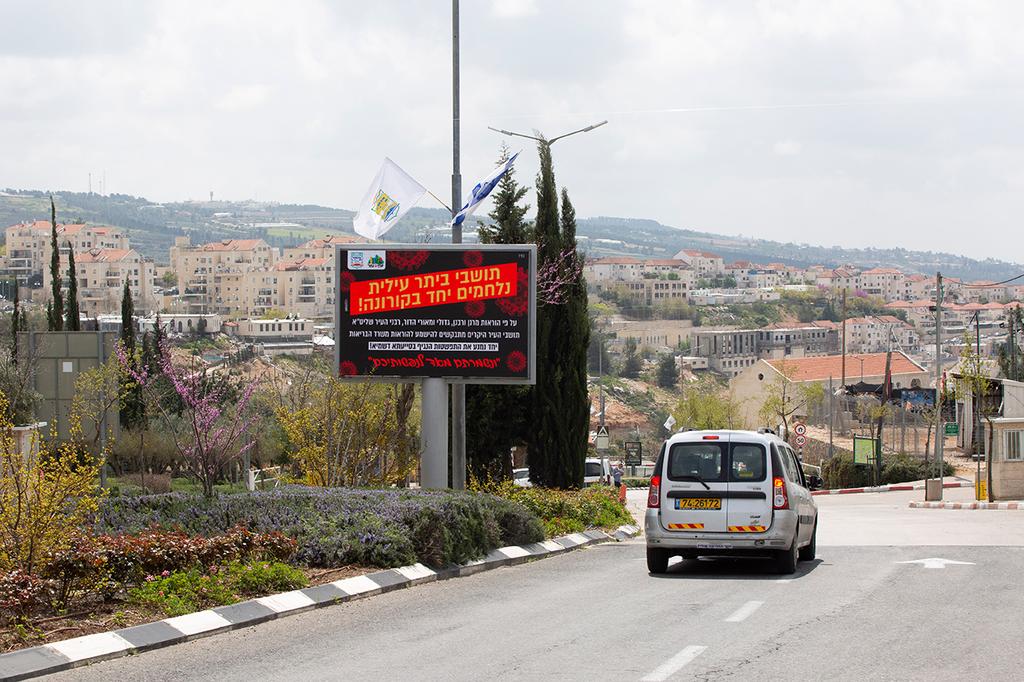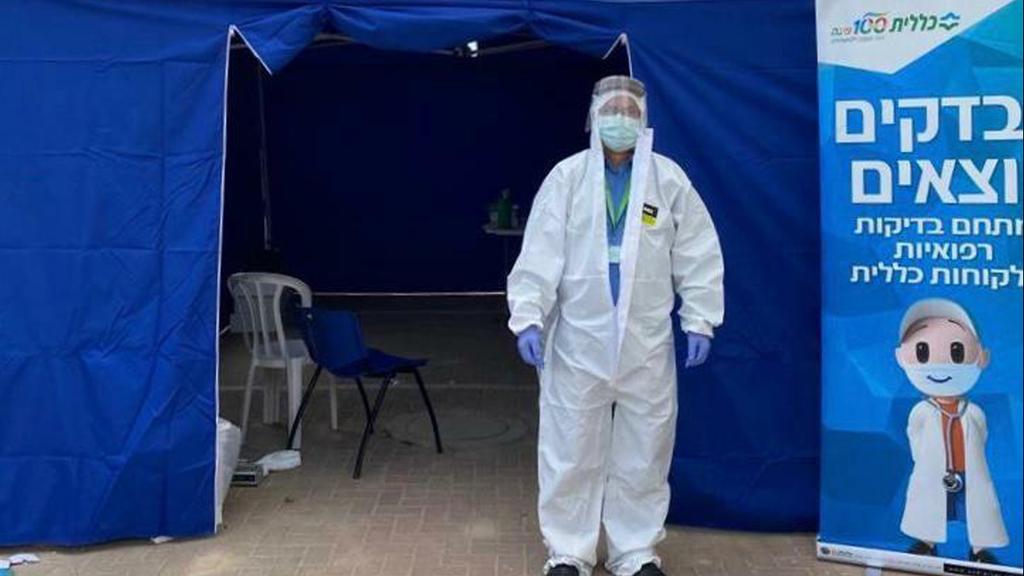The number of serious coronavirus cases and the number of patients on ventilators both have risen in Israel, as the country imposes new restrictions Wednesday as part of efforts to bring its second wave of the pandemic under control.
On Wednesday morning, the Health Ministry said 107 people were in serious condition from COVID-19, up from 83 by Tuesday midnight, while the number of people on ventilators rose from 34 to 36.
3 View gallery


Sheba Medical Center constructs a new coronavirus ward as Israel deals with a second wave of the pandemic
(Photo: Yariv Katz)
According to new ministry data, there were 14,104 active cases of the disease in Israel on Wednesday morning, up from 13,653 on Tuesday night.
The COVID-19 national death toll climbed by one to 343.
Israel saw a new daily record in diagnoses on Tuesday, with 1,319 infections, according to the the National Coronavirus Information and Knowledge Center.
This was both a new high in daily cases for the country and the third time in one week that the number of new diagnoses has exceeded 1,000.
Meanwhile, the Health Ministry was expected to tighten the criteria to qualify for coronavirus testing after a massive uptick in cases has led to soaring numbers of people requesting a test.
Intercity buses will only be allowed to carry 30 passengers, urban buses will be able to hold 32 people and articulated buses (with two joined segments) can take up to 50 passengers. Bus services will also stop at 10 pm every night and air conditioning on vehicles will run alongside open windows.
The West Bank ultra-Orthodox settlement of Beitar Illit was to begin a week-long lockdown on Wednesday after the community witnessed a spike in cases, with 179 new diagnoses in a week and a positive test rate of 16%.
3 View gallery


The settlement of Beitar Illit was due to go into lockdown on Wednesday
(Photo: Amit Shabi)
Other Israeli hot spots for the virus include Kiryat Malachi, Bnei Brak, Modi'in Illit, Ra'anana, Kuseife, Kafr Qara, Jerusalem, Beit Shemesh and Tel Aviv.
There are currently 1 ,871 active cases of the disease in Jerusalem, 1,217 in Tel Aviv and 1,037 in Bnei Brak.


